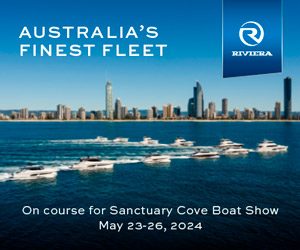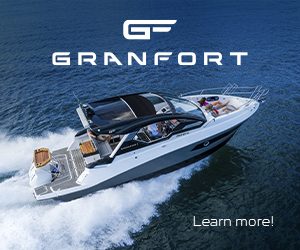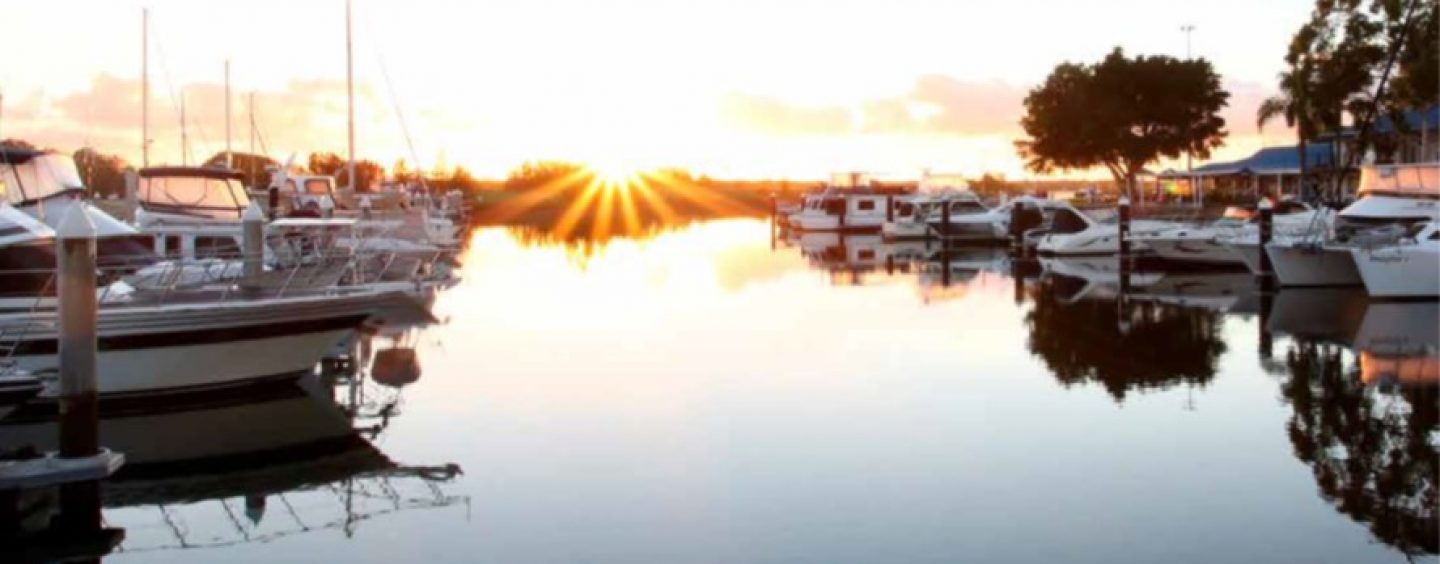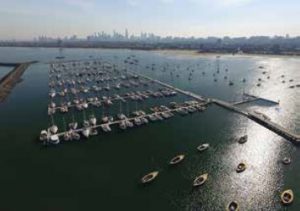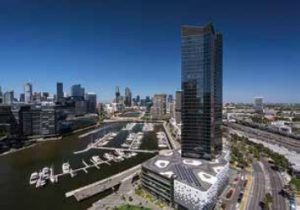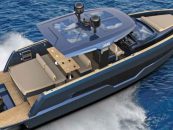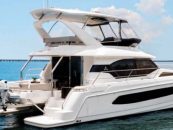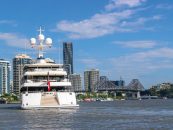By Bruce Bell
The decision whether to buy a berth for your boat is dependent on several factors like marina location, supply and demand, and the type of ownership being considered: leasehold or freehold.
Freehold is not permitted on Crown land, which includes most river, creek, and lake beds, estuaries, and seabed waters, like bays. So, berths at marinas in these locations cannot be owned, only leased. Leases vary in length, usually to a maximum of 20 years, but occasionally 99- year leaseholds are taken. At the end of a lease, the berth has no value. So, what’s the point? Well, by taking a leasehold, the boat owner is effectively paying rent in advance for a pre-determined time and gaining a longterm secure home for their vessel. Owners may prefer this option over renting annually from a marina or yacht club. Many man-made lakes and canals are not considered to be Crown land and, as such, marinas built on private land may offer freehold title for berths. These berths can appreciate and become an asset.
The various business models that support the ongoing viability of marinas are many and can range from a yacht club providing a facility for its members, to major investors building a commercial venture (maybe as part of a residential development), with a desire to hold a long-term investment with a good return and prospect of capital growth.
With a yacht club model, the club would take a 50-year head leasehold over the seabed from the government and then design and build the marina. This would be funded by the sale of the berths on, say, 20-year leaseholds that include the first BOAT GBUSIDINEESS right to take a new period at the end-of-lease, at a price to be determined by the club. The second term might not include a third option as the club may, at that time, no longer require capital. Instead, the club may prefer to take the berths back into a rental pool to provide a steady source of income by leasing them on 1- to 3-year terms.
What makes this model particularly appealing to a club is that it always knows the government is going to grant them a new head lease at the expiration of the old lease.
Also, it is generally compulsory for berth owners to be members of the yacht club, which underpins the membership numbers that, in turn, support the dining and bar, slipping and repair facilities.
IS IT BETTER TO OWN OR RENT A MARINA BERTH?
Owners of valuable and good quality boats often buy berths which provides them with easy access, car parking, security, amenities, and protection from the weather.
Buying a long-term leasehold berth is a lifestyle decision which does mean making a substantial initial investment. But by doing so, it offers a significant cost advantage over annual rental, and this is a driving factor for many owners if they can make that capital outlay.
The value of a marina berth varies according to many factors, which boat owners should consider, like marina location; services offered, such as 24/7 security, onsite harbour manager, etc; quality of administration; access to a clubhouse; slipping; fuel availability; WI-FI quality; supply and demand – typically marinas have 80% occupancy, while some more popular locations boast 100% occupancy and long waiting lists.
The cost to buy a leasehold will increase with the size of the berth and length of the lease. A typical 10m berth could cost around $10,000 to $15,000 per annum for the length of the remaining lease.
Additionally, there are annual outgoings which usually cover such essentials as power, water, security, insurance, marina maintenance, and administration services. Annual outgoings will vary from one marina to another but expect to pay $4,000 p.a. or more.
Berths in marinas are usually all safe and well protected, so the exact location of a berth inside a marina is not normally a consideration for buyers/ renters. Overall, marinas are well run, and problems are minimal, including those that allow liveaboards which are more common in Queensland.
Given fewer than 5% of onwater boats in Australia are kept in marinas, you may think that more would be built. While there are several major developments happening in Queensland, the lack of marinas is due to the high cost of building, affordability for boat owners, and the often long and costly process involved in acquiring all the necessary approvals from various authorities.
For more information regarding the sale or purchase of berths and swing moorings, contact the specialist broker
Bruce Bell at Marina Berth Sales Pty Ltd. Ph: 0418 313 304
bruce@marinaberthsales.com.au
www.marinaberthsales.com.au
Published in print April-June 2023


